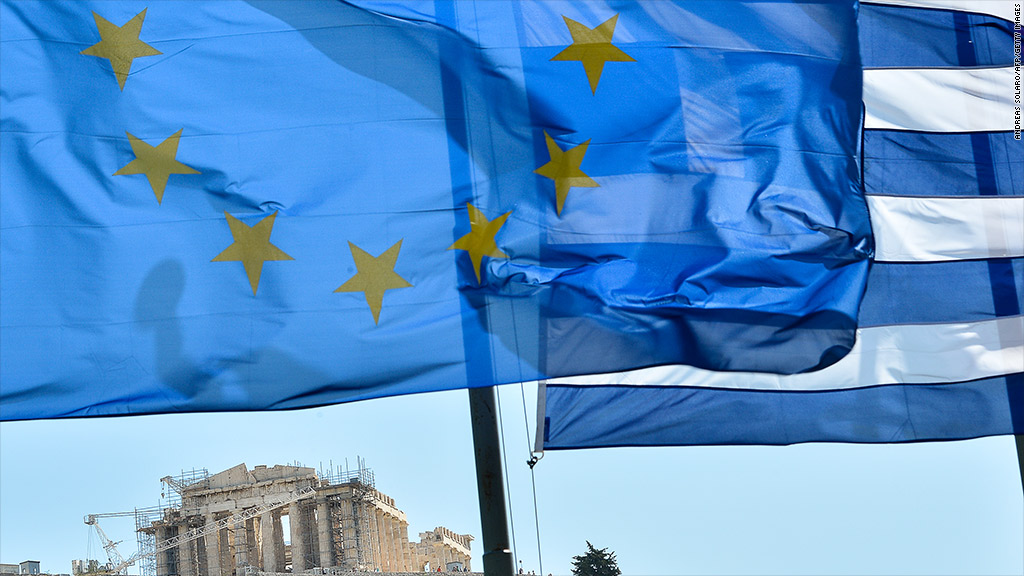
Eurozone finance ministers and the International Monetary Fund announced Monday they had reached an agreement that moves Greece closer to receiving a massive bailout payment.
The deal includes lower interest rates for Greece, a debt buyback and more time for the debt-laden country to repay its rescue loans. The measures could help cut Greek debt to targets of 124% of GDP by 2020 and lower than 110% in 2022.
But plans to forgive Greek debt, a step some negotiators think is necessary to restore fiscal balance in the country, were shelved .
"I welcome the initiatives agreed today by the Eurogroup aimed at further supporting Greece's economic reform program and making a substantial contribution to the sustainability of its debt," Christine Lagarde, the IMF managing director, said in a statement.
"This builds on the significant efforts by the Greek government to carry forward its fiscal and structural reform agenda," she said.
The meeting between the eurozone finance ministers and IMF officials, which dragged on for around 10 hours in Brussels, was the third round of talks in recent weeks.
"This is not just about money," said Eurogroup President Jean-Claude Juncker. "This is a promise of a better future for the Greek people and for the Euro area as a whole, and a break from the era of missed targets and loose implementation."

The agreement moves Greece toward the release of a 44 billion euro bailout to be paid in several installments. Much of the bailout money will be used to recapitalize Greek banks in a bid to revive lending to companies and households.
Greece received its first bailout two and a half years ago, but worries persist that the country's still-massive debt levels could lead to a messy exit from Europe's monetary union.
Still, investors greeted the news with enthusiasm, boosting Asian stocks and U.S. market futures.
Related: Service sector adds to eurozone gloom
In Greece, Prime Minister Antonis Samaras has won parliamentary support for new spending cuts, tax rises and labor market reforms aimed at reining in Greece's debt -- seen soaring to 190% of GDP in 2013 -- and restoring growth to an economy about to enter its sixth year of recession.
The latest austerity drive has sparked violent protests in Greece, where unemployment now stands at 25% and where living standards for many have plunged as the economy has shrunk by a fifth.
But Greece's resolve has reassured the troika of international lenders -- the EU, European Central Bank and International Monetary Fund -- and won Athens two more years to meet a budget deficit target contained in its second bailout program agreed earlier this year.


